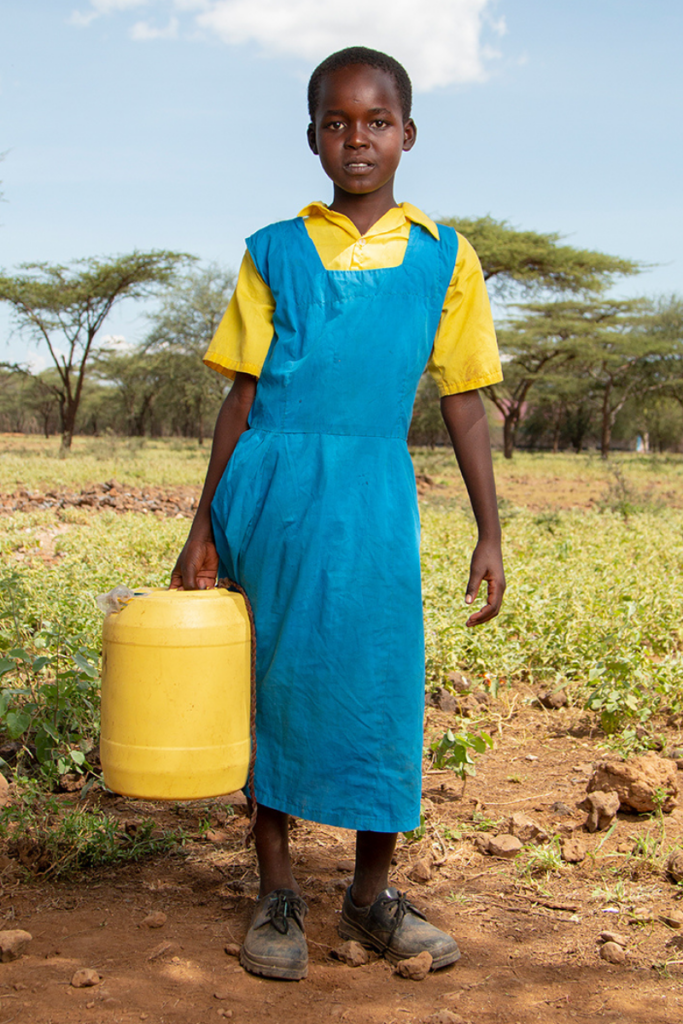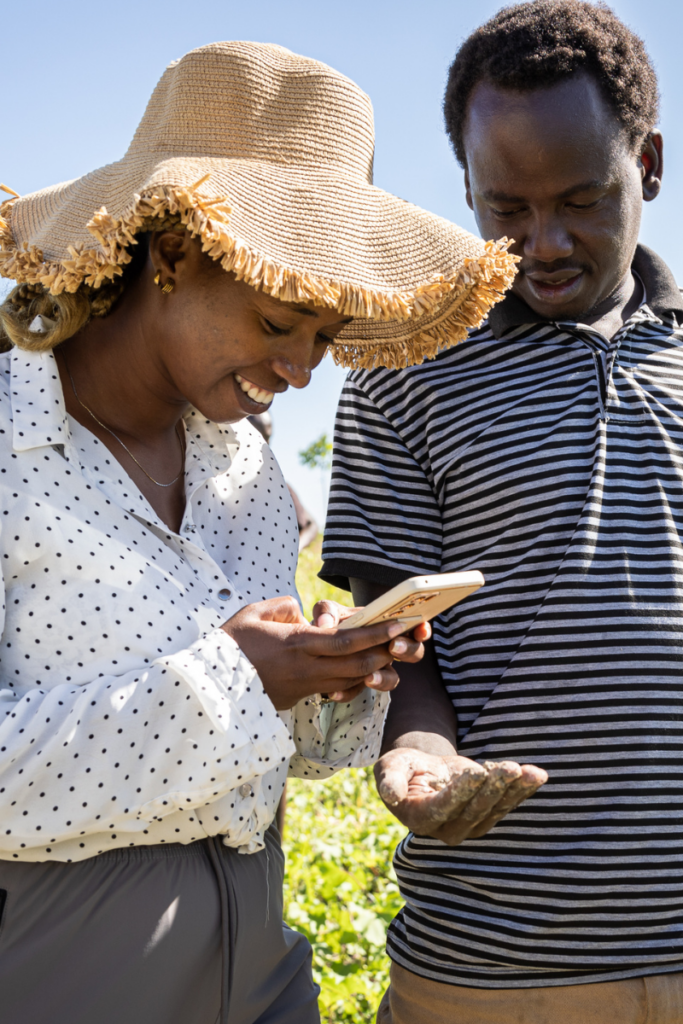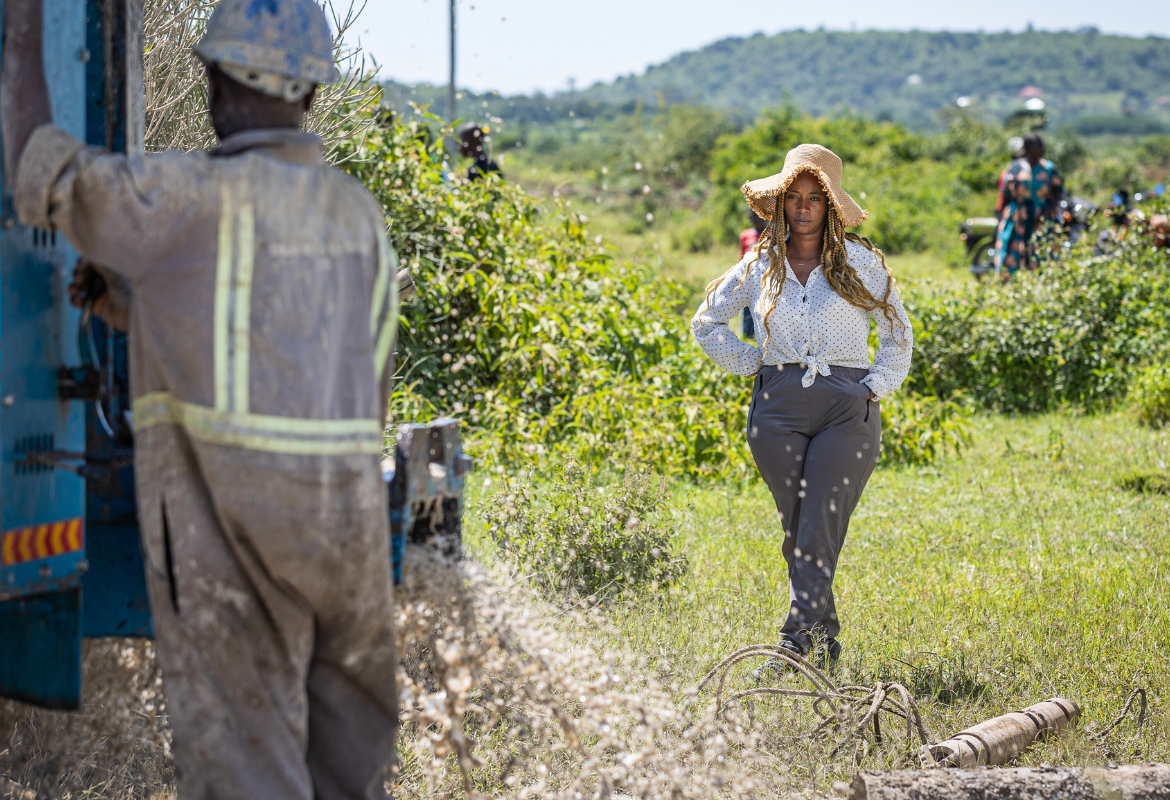March 7, 2024
International Women’s Day: “Who Will Change the World if Not Us?”
In the vast expanses of Northern Kenya lies Chorora, a region characterized by its scarcity of resources and the enduring struggle against prolonged droughts. Mesret Endale, a resilient woman from this region and Well Aware’s Project Manager, knows these challenges intimately. Endale shared her journey from battling the harsh realities of water scarcity to becoming a beacon of hope for her community.
“Access to clean water was a daily battle,” Endale said, reflecting on her childhood and teenage years. Most days, she and the other young girls in her community would trek for over eight hours searching for water. Despite their efforts, they often returned with less than 20 liters of water, leaving them with hardly enough to sustain their families. This struggle was compounded by the risk of contracting waterborne diseases from contaminated water sources shared with animals.
“The water sources we collected from did not have clean water because they were the same spots animals would drink water from,” Endale explained, vividly recalling the habitual nature of this debilitating and unsafe task.
 Clean water, however, came at another cost: education. “Sometimes we had to miss school to fetch water,” Endale said. “Water impacted our health, cost us our education, cost us opportunities. The moment we would miss school to collect water, we no longer progressed or improved in our education. Our performance was slow compared to those who had access to clean water.” While their male peers remained in the classroom, young girls in rural East Africa jeopardized their safety and health in order to provide water for their families daily.
Clean water, however, came at another cost: education. “Sometimes we had to miss school to fetch water,” Endale said. “Water impacted our health, cost us our education, cost us opportunities. The moment we would miss school to collect water, we no longer progressed or improved in our education. Our performance was slow compared to those who had access to clean water.” While their male peers remained in the classroom, young girls in rural East Africa jeopardized their safety and health in order to provide water for their families daily.
Endale also described the dilemma faced upon returning home with meager supplies of water. “When you get home with the water, you have to decide whether you will use it to drink, cook, bathe, or wash.” Endale touched on how the essential tasks of drinking and cooking took precedence over bathing and washing. With such limited resources, she was able to bathe only twice a month. “This was a big challenge during my teenage years. My menstrual hygiene was at risk,” Endale said. In Kenya, when girls reach puberty, access to clean water and a private place to tend to menstrual needs becomes a luxury far out of reach. More than one million girls miss school every month during their menstrual cycle because of the lack of access to toilets and sanitary pads. Due to their frequent absences, most girls have no choice but to drop out. These conditions perpetuate a cycle of limited education and missed opportunities, leaving most girls with restricted employment opportunities and limited economic empowerment.
"Sometimes we had to miss school to fetch water," Endale said. “Water impacted our health, cost us our education, cost us opportunities. The moment we would miss school to collect water, we no longer progressed or improved in our education. Our performance was slow compared to those who had access to clean water.”
Despite these ever-present adversities, Endale’s unshakeable spirit prevailed. Due to the challenges she faced growing up, she recognized the intrinsic value of clean water access and the dire need for sustainable solutions. “As a teenage girl, raised by a single mother with limited income, I didn’t have a clear road map of the changes that I needed to make in my community,” she said. “But I knew it couldn’t stay the same.” Endale’s resilience and determination to be the change her community desired is what fueled her pursuit of education even further, despite the profound challenges faced in accessing education. Educational opportunities were significantly fewer for girls compared to boys; nonetheless, Endale remained undeterred in her pursuit of knowledge and empowerment.
“I evolved into becoming a self independent woman who made her own choices and made sure I had that voice that deserved to be heard.”
 Armed with knowledge and fueled by a passion for science, Endale dedicated her higher education to water science and environmental engineering.
Armed with knowledge and fueled by a passion for science, Endale dedicated her higher education to water science and environmental engineering.
“I wanted to further advance my knowledge in the water sector so I also took certificate courses in professional drilling management and project management. This helped me advance in my career.” Now, Endale works as a Project Manager for Well Aware and is at the forefront of initiatives aimed at transforming communities through access to clean water and sanitation. She is driven by a profound sense of purpose—a calling to effect positive change and uplift marginalized communities. “I see their livelihood is similar to the one I came from. I watch as the kids drink water from a vainer that is not treated, go to school barefoot, and get sent home from school because they cannot pay the school fees,” Endale said. “There is such a satisfaction I feel waking up every day to do something I have been longing to do, and changing the lives of those I know I was once like.”
“There is such a satisfaction I feel waking up every day to do something I have been longing to do, and changing the lives of those I know I was once like.”
Through her advocacy, Endale seeks to redefine access to clean water as a fundamental human right, not a privilege determined by socioeconomic status. “I want to be at the forefront of such a movement because clean water shouldn’t be a luxury. It should be a resource that is accessible to everyone.” She envisions a future where sustainable solutions pave the way for equitable access to resources, particularly for women and girls. Recognizing the cyclical nature of poverty being perpetuated by the lack of access to sanitation and toilets, particularly affecting the education of girls like Endale, Well Aware has launched a Sanitation & Hygiene campaign. By addressing the critical need for sanitation infrastructure, this initiative aims to empower girls with the resources and opportunity they deserve. Access to clean water and sanitation is not just a matter of convenience: it’s a catalyst for education, health, and gender equality.
When asked what advice she has for those who aspire to make a positive impact in their communities through empowering women and supporting their needs, Endale replied,
“Who will change the world if not us?”
It is within our power to make a difference. Together, we can ensure that every girl, every woman, has access to the resources they need to thrive.
